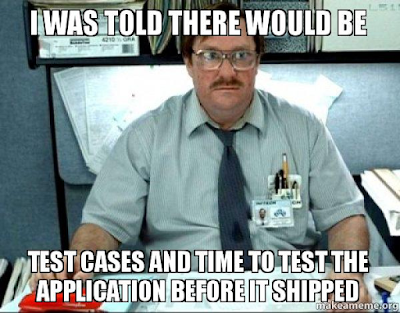Top Three Essential Skills for Testers - MoT Bloggers Club April 2021
This blog post is inspired by Ministry of Testing Bloggers Club topic idea for April 2021, the goal of the post is to describe only three skills which are important for testers and explain why! For me personally, by reading blogs from different authors, I noticed that there is always something new and unique to everyone's perspective - even when people are covering the same topic! Aside from broadening your horizons it is also a good way of learning (you do get a certain level of repetition) and benefit from viewing things from another angle, which is always a good source of thinking material! So without further ado, I will list my top three skills bellow.
1. Communication
I often list this one as skill number one whenever someone asks me what to I think about the most important skill for a tester. But why? Communicating effectively is important for almost any role in IT, but, for a tester it is a must, as a tester may be often viewed as the harbinger of bad news so it is vital for a tester to be able to pass on unpleasant info in a diplomatic manner. If you are a good communicator you will treat other with respect which will make your criticism appear more constructive, instead of being interpreted as an accusation. Communicating with others becomes more challenging when working remote (for most people at least) which in turn means that it is even more important too keep in touch with your team members and to maintain healthy relations by not losing contact and finding the right balance when choosing how to contact someone, find adequate timing and in which manner to address others - you are more likely to be more formal when communicating with a client and notably more casual when dealing with the members of your own team.
2. Scepticism
This one is somewhat self-explanatory, in a sense that a tester should approach software with criticism and doubt. In practice this mean that a sceptical tester will check things that most non-testers will not even consider, snooping around for edge case scenarios and having a methodical (and "destructive" as well) approach to negative testing. It is important to have your scepticism balanced, meaning that you should be seeking ways to break the system (so it can be improved) but not to wasted your energy on things that may be trivial - if you asses the risk and realize that a possibly nasty defect is highly unlikely to occurs, or it may impact a tiny portion of your userbase, and it may be complex to fix, this is an example of a battle not worth fighting.
3. Empathy
Why is this one important? Having consideration for feelings of other helps us being a better tester on many levels. If while testing a certain customer journey in your app you notice things that are not bugs per se, but might be frustrating to the customer an empathic tester should suggest improvement in these areas - having a good UX designer can help prevent a lot of such issues, but even then these occurrences are still possible. Additionally, empathy is also very important when interacting with your own team members, teams where relations are good are more productive - and being considerate and knowing when to listen will get you there.







Learn From India's top teachers with our Online and offline Tuition Classes crafted for kids. Get the most affordable Personal Online Classes for your children with more attention and fun.
ReplyDeleteAI school of india is the best coding platform for kids.
ReplyDeletecoding for kids!